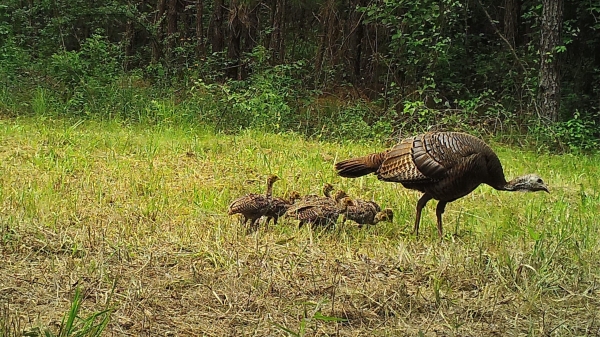A new study suggests eastern wild turkeys in five southern U.S. states are unlikely to make meaningful changes in the timing of when they begin nesting, even under significant future climate change.
The findings suggest eastern wild turkeys (Meleagris gallopavo silvestris) could be vulnerable to shifts in climate, which could threaten the availability of their food sources, the amount of vegetation cover available to protect them from predators, and other factors.
“There are implications here for turkey populations if individuals are inflexible in their ability to shift their reproductive activities, as resources are certainly going to change in the future,” said Chris Moorman, professor in North Carolina State University’s Fisheries, Wildlife and Conservation Biology Program. “This could result in ‘phenological mismatch,’ where the timing of an animal’s natural history doesn’t match up with the food and cover resources that are critical for successful reproduction and survival.”
Read more at North Carolina State University
Image: A turkey hen and her poults, or young juvenile turkeys. (Photo Credit: Bret Collier, Louisiana State University via North Carolina State University)


